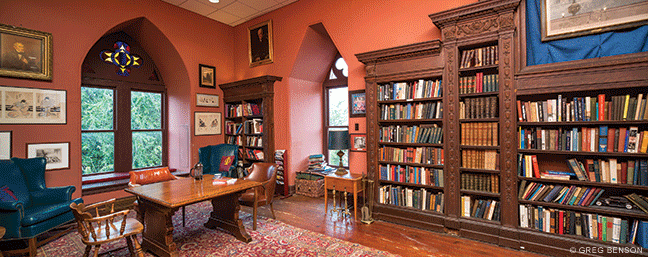
As it enters its third century, America’s oldest continuously existing college literary society still has a role to fill on campus, in keeping with its unofficial motto: “Raise hell with your brain.”
BY CAREN LISSNER | Photography by Greg Benson
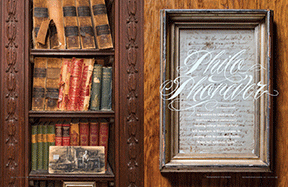
Consider college literary societies. Many were formed in the early 1800s and functioned as the most powerful student organizations on campus at the time. A college would often have at least two literary societies, and students were expected to choose one. It was common for the young scholar who participated in these groups to be able to compete in debates and have a few poems ready to launch from his—always his, in those days—tongue.
For decades they thrived, but as the 20th century dawned and moved toward its midpoint, the story for these groups was mostly one of decline, challenged by the rise of the Greek system, other new student groups, and an increasing focus on professional education—not to mention the Great Depression and two world wars. The mobilization for World War II often provided the final blow, as many literary societies were booted from their headquarters and saw their largely male constituencies depleted by the military. Only a few such groups—like Penn’s Philomathean Society—managed to clutch at the very edge of existence, with one or two members keeping longtime traditions alive.
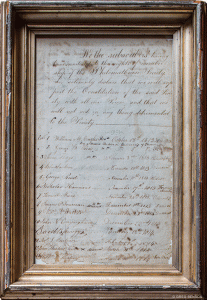
Today Philo, as it’s known colloquially, claims to be the oldest continuously existing college literary society in the United States, and is one of the few prominent ones still active. The group—which is celebrating its 200th anniversary this year—still meets regularly (every other Friday night) on the fourth floor of College Hall, holds three to four art events per semester in its art gallery, hosts an annual orator, publishes a literary magazine, organizes dozens of events on campus each year, and maintains a strong relationship with its alumni, who are considered “senior members” rather than former members. (Disclosure: I joined Philo in my senior year at Penn.) To mark the bicentennial, Philo held a gala dinner on October 5 and plans other activities. (Visit www.philomathean.org/bicentennial for more information. There you can also “Phriend Philo” on “phacebook.”)
But while no student organization can challenge its longevity, Philo is much less well known around its own campus than higher profile groups that its members helped create, including Mask and Wig and The Daily Pennsylvanian. With Philo representing a tiny percentage of students—currently 33 undergraduate members and one graduate member out of about 10,300 undergrads at the University—members of the group have been pondering Philo’s current place at the University, and what role it should fill in the future.
Philo events are open to everyone, and those involved say that the small number of actual members is not a sign of lack of interest but rather a testament to the fact that the group has spawned so many other popular campus groups and attracts many students to its activities without all of them having to join. (In fact, the group’s constitution limits membership to 50.) But despite all of the events it holds, the society remains a mystery to many on campus.
Philo’s Rise, Near-Death, and Revival
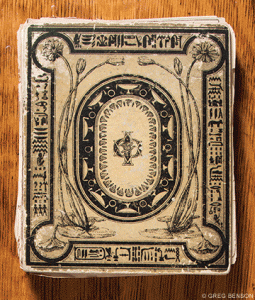
The Philomathean Society was founded by the entire Class of 1815—all 13 members of it—on October 2, 1813. When Penn relocated from its former campus at Ninth and Chestnut streets to West Philadelphia in 1872, Philo and its rival Zelosophic Society (founded 1829) were given the entire fourth floor of College Hall—a series of four stately rooms with dark hardwood floors, currently accessed by a locked staircase—for their headquarters as an incentive to join the crossing of the Schuylkill.
Philo’s most prominent activities were debates with other literary societies, but members also engaged in a bevy of other artistic pursuits. They held regular Friday night meetings, including literary exercises on various topics; expanded their library in College Hall; and staged theatrical productions ranging from morality plays to comedies in conjunction with Zelo. In an accomplishment that generated recognition and praise from around the world, upon receiving a plaster cast of the famed Rosetta Stone—whose text in three scripts provided the key to understanding Egyptian hieroglyphics—three Society members published the first English language translation in 1858. The society also spun off numerous groups that took on lives of their own. Philos started a forerunner of The Daily Pennsylvanian, founded Mask and Wig and Penn Players, and later helped establish the comparative-literature and American-civilization programs at Penn.
A Philo history published to mark the society’s 100th anniversary in 1913 (available for free download from Google Play, by the way) provides a reminder of its central role in the University’s development in those days. A list of “Philomatheans Among the Officers of the University” constitutes a Who’s Who of Penn movers and shakers of the late 19th and early 20th centuries—including provosts William Pepper C1862 M1864, Charles Custis Harrison C1862 G1865 Hon1911, and Josiah H. Penniman C1890 Gr1895, plus faculty stalwarts Felix Schelling C1881 and Cornelius Weygandt C1892 Gr1901 (English); Edward Potts Cheyney C1883 W1884 (history), who delivered an address on the society’s first century included in the volume and would go on to author a history of the University published in 1940 for Penn’s bicentennial; and Lightner Witmer C1888 (psychology), who would coin the term “clinical psychology” and establish the first psychological clinic in the US at Penn in 1896, to name just a few.
Nevertheless, the group’s fortunes fluctuated during its second century, even before college literary societies fell out of fashion. In 1927, University overcrowding forced Philo to temporarily vacate its College Hall space for smaller quarters in Houston Hall. Between the loss of its home base and the advent of the Great Depression, membership declined. Then the group was ejected from Houston Hall during World War II, when the US Navy’s officer-training program moved in. According to Philo lore, a handful of interested parties met in students’ apartments to keep the society alive. But after the war ended, returning veterans joined and helped revive it.
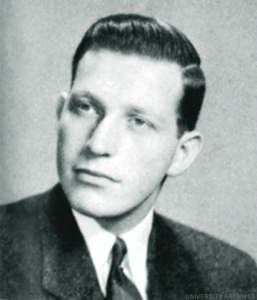
When moderator Charles Fine Ludwig C’53 L’56 joined in 1951, he made it his mission to restore many of the old traditions that had fallen by the wayside. Insisting that Philo had been most successful when following its traditions, he pushed for cabinet members to resume wearing black robes while presiding over the meetings. Other members were unenthusiastic, according to a history of Philo written for its sesquicentennial, but Ludwig won out. That’s still how cabinet members dress today. Ludwig also made the case that Philo should have a regular home, and he ultimately got his way there, too, when the society finally returned to College Hall in 1967.
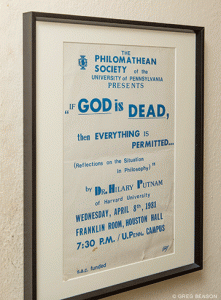
Ludwig also actively encouraged the involvement of alumni as “senior members,” and set a powerful example with his own behavior, continuing to give three-hour tours of the halls to new members until the years before his death in 2002.
Whether in the halls or out, the group’s most ardent members always found ways to follow its original mission, which was “increasing the learning of the members and the academic prestige of the University.” Mark Frazier Lloyd, the director of the University Archives and Records Center, was asked this year by the society to write a history of Philo on the occasion of its bicentennial; he says that current events weren’t the only determinants of the group’s popularity. Philo suffered most, he says, when the University allowed the liberal arts to take a backseat to Penn’s professional schools—particularly Wharton and engineering.
“As those schools took the lead, the fortunes of Philo dipped,” Lloyd says. “At the time of Philo’s centennial of 1913, Philo was in relative decline. That circumstance was not reversed until the 1950s or ’60s. There was the conscious decision by the president and provost of the University to move liberal arts to the center of the academic enterprise. Two presidents did this: Gaylord Harnwell [Hon’53, who served from 1953 to 1970] and Martin Meyerson [Hon’70, in office from 1970 to 1981]. The University later combined all of its liberal-arts programs into the School of Arts and Sciences, which dates only from 1975. From 1953 to 1975, Philo made a tremendous comeback.”
Lloyd says that as he wrote the Philo history, he came to a conclusion: “The 20th century history of Philo has followed the arc of the fortune of the College at Penn. In the years when the College was overshadowed by the Wharton School, the Philomathean Society retreated to its lowest levels. In the 1950s and 1960s, as the College began to rebound, so too did the Philomathean Society. Historically, at least, the Philomathean Society has been about the prestige of the humanities.”
The society continued its upswing in the 1980s and 1990s, when biweekly meetings on the fourth floor of College Hall lasted until the wee hours of the morning. The group organized campuswide debates, activities, “Keats and Beats” poetry readings, and publications, even when the group found itself out of the halls again during the mid-1990s while College Hall was renovated.
Elliott Witney C’97 CGS’99, says that he felt the need for Philo to reach out to the University community during his time as moderator in 1995. “It was seen as very closed off and elitist,” he says. “As moderator, my campaign was all about opening up the organization to the broader community, not to lower the bar of intellectualism but to increase the flow of people at events.”
Witney created the PLAY Committee, which stood for Philos Living and Advocating Youth. “We played outside, we played tag, climbed trees,” he recalls. “The committee structure was so snooty that we needed to find a way to gain exposure. We had a reading of William Henry Harrison’s entire inaugural address outside. We held a puppet show, delivered at the Children’s Hospital. We had a team of writers, puppeteers, and papier-mâché balloons. It was really beautiful, Philos and non-Philos collaborating. It chopped barriers between people who knew about Philo and people who didn’t know.”
Some projects in the 1990s were of the more traditional academic sort. For example, the society published an anthology of poetry in 1996 in honor of Daniel Hoffman, the poet and Felix Schelling Emeritus Professor of English, who had retired in 1993. As head of the creative-writing program, Hoffman—who died earlier this year at age 89—had brought many poets to the Philo halls.
Today, Philo organizes dozens of events and stays true to what has been its unofficial motto since at least the early 1900s: “Raise hell with your brain.” Whether it was the Rosetta Stone translation or bringing renowned experts to campus as the annual orators, the group has worked to improve the intellectual environment and increase the prestige of Penn. So what should Philo do in the future, and how can it steel itself against changing times and changing priorities?
Philo at 200
Philo’s main structure, as in the past, comes from its meetings, held every other Friday some time after 8 p.m. (described on the website as 8:25 Philo Standard Time), when the scriba announces, “All rise for the entrance of the moderator.” The scriba, first censor, second censor, and moderator enter the room in black robes. Roberts’ Rules of Order are employed during their meetings. Members come up to a lectern to deliver dozens of committee reports.
Some of the reports focus on the group’s activities and projects, such as the Art Gallery Committee and the Committee on Philomel (the literary magazine). When the reports are given, members make motions, offer amendments, and debate issues and policies. But some committee reports are thrown in to mitigate the seriousness of the meetings, such as the Very Very Very Very Funny Joke Committee and the “Committee of the Infinite Regression Committee which is a committee of the Infinite Regression Committee which is a committee of the Infinite Regression Committee.” The meetings are exercises in both learning and elocution, a way to sharpen one’s mind and wit. While committee reports and associated discussions take up the bulk of each meeting, there is an intellectual event toward the end, by tradition: the literary exercise, given by a member on a topic ranging from James Joyce to “psychosexual art.” Two members may ask a question following the exercise.
The last meeting of the spring 2013 semester ran until 5:30 a.m., according to moderator H. Barlow Holley C’14, a humanistic philosophy major. It included final committee reports, a visit from the Philolexian Society from Columbia, discussion of the upcoming bicentennial activities, a literary exercise on “quadscience” (the study of groups of four), and the elections of new officers.
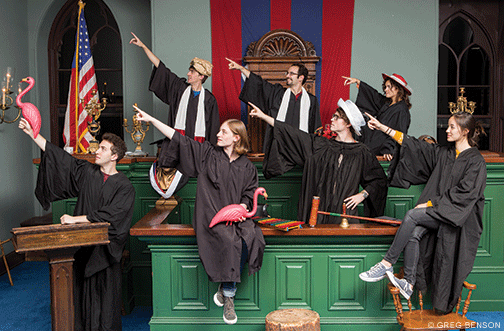
Applicants for membership in the society must sit for an interview with four or five members, give a three-to-six-minute presentation, and submit a piece showing critical thinking or creative value. Those who don’t gain admission can apply every semester until the last semester of their senior year. But those who aren’t members can still be active, as almost all activities are open to the community at large, including the biweekly meetings.
While some activities take place outside of College Hall or in other parts of the campus, the group makes full use of its halls, art gallery, and library to host afternoon teas with professors and the like.
During a one-week period toward the end of the spring 2013 semester, the group conducted the following events: a lecture at Irvine Auditorium by annual oration speaker Richard Dawkins, the prominent evolutionary biologist and vocal atheist [“Gazetteer,” May|June]; two days later, a gathering known as a “Solistimum” (apparently derived from the Latin word for “most perfect”) at the halls, during which Philos and guests were invited to mingle among “music, friends and food”; the next day, an afternoon tea with Penn history professor (and civil-liberties crusader) Alan Kors; the regular Friday biweekly meeting featuring a literary exercise about the legalities of cannibalism (“sating your craving to know if and when you can eat someone”); a discussion about alternatives to Richard Dawkins’ arguments, with three panelists; and finally an art-gallery reception for a New York city avant-garde couture designer who specializes in hats.
In the two weeks after that, the group held wine classes (for those 21 and over), another afternoon tea with a professor, a “Keats and Beats” reading in which people read the poems of Baudelaire and their own, and an installment in the “Lindback Lecture series” by art-history professor Larry Silver on “Bruegel’s biblical kings.”
Stephen Marmon C’71 WG’81, a senior member who returns to the University often, says that in the present day, Philo seems to be keeping to its mission well.
“As Penn has gotten, I don’t want to say more intellectual, but as it’s had a wider set of students from all over the world, there’s been more interest in Philo’s literary activities than ever before,” he says. “When I’m back on campus I see this. You can see that the meetings are always packed; there’s great interest in it. I think there’s a real demand as part of the undergraduate experience to be invested in a literary discussion that isn’t offered everywhere.”
Proposed: A Literary Society is Not an Anachronism
Philo has served, throughout the years, to fill in the blanks at the University, to create groups and publications where none existed before. But at the same time, members say, Philo has filled in the blanks in students’ own lives.
“I think it was a home for people like me who were not comfortable with fraternities, and the women [who] were not comfortable with sororities,” says Hilary Putnam C’48. A noted philosopher and Harvard professor emeritus who is now 87 years old, Putnam is said to be among the Philo members who kept the society alive during the 1940s. “Even back then,” Putnam recalls, “literary types were kind of a minority. We tended to find each other. I wanted to be a poet. I think I met everyone who wanted to be a writer.”
Some of the first fraternities and sororities rose to prominence as outgrowths of literary societies, focusing on philosophical rather than literary pursuits. Greek organizations became stronger by opening chapters at other universities, while literary societies remained independent from college to college. Today, Greek life focuses on socializing and charity, not so much learning, and that’s why—some say—groups like Philo are essential.
“It’s sort of a refuge where people can talk about what they want to talk about without the pressure of grades and competition,” says Harold Goldner C’77, now an employment attorney in Pennsylvania. “We had regular exhibits in the art gallery, three to four a year. I remember one show was by a [Temple University] Tyler Art School student and she had never shown before. The orator my year was Marcel Ophuls [the documentary filmmaker and former actor]. That was a kick. And the meetings were a great place to be on a Friday night. If you were obsessed with some obscure Greek playwright and you read all their stuff and someone else in the general University community might say, ‘Why?’ a Philo would say, ‘That’s interesting; I see why you’re doing that.’ I don’t think there’s anything else like it in the University.”
“Philo does not have universal appeal, but at the same time we still open our arms to everyone and try to make the best effort possible to include the University community at large,” Holley says. “In many ways, it’s not necessary for Philo to be what it was in the 19th century, when it was the only real student group. So many groups sprang out from Philo because Philo was the only thing they had from which to spring. It’s no longer necessary that Philo be the only thing at Penn; merely that Philo be actively engaged. I would be happy to see Philo, during the bicentennial, reflect on its past and realize that the times that the society was the most prosperous were the times when it both reveled in social conviviality with its members, and at the same time pursued its intellectual mission to the fullest.”
Home Sweet Home
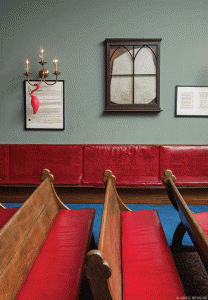
Several members say there have always been rumors that Philo could be exiled from its halls again. That would be a shame, they add, because Philo works best, and best serves the University, when it has a steady home.
“It’s sort of like Mask and Wig having its own building downtown,” Marmon says. “Having a physical facility of your own gives an organization a stronger base to work with.”
On a summer Saturday, Holley gave a brief tour of the halls, a series of rooms that are both austere and stately, befitting a 200-year-old organization. He pointed out the library (the easternmost room), the art gallery, the meeting room with its wooden pews, and the office, which used to be Zelo’s headquarters.

Philo’s officers often morph into walking authorities on the group’s history and policies, and Holley fits the pattern. When asked what was the oldest item on display, he quickly cites a framed program for Commencement exercises dated July 30, 1788.
Above the pews in the meeting room, Holley points out framed treaties with other college literary societies, including the Philolexian Society at Columbia and the Philodemic Society at Georgetown. (There is no treaty with Whig-Cliosophic at Princeton, however, who are “our sworn enemies,” Holley explains, deadpan.)
Adam Korengold C’94 cites warm memories of being in the halls. He says he brings the Philo ethos—encouragement of academic pursuits, no matter how obscure—to his two young children, recently taking them to an exhibit at the National Gallery of Art in Washington on the Ballet Russes dance company.
“I remember being able to think, ‘It’s eight on a Thursday night; my homework is done. I’m going to the halls and see what’s going on there,’” Korengold says. “Inevitably there’s going to be someone up there, and we’ll listen to music or talk about something. I don’t think you appreciate the ability to do that when you’re in the moment.”
Bethann Miller Nativ C’01 GEd’05 started Penn in engineering, became a philosophy major, and eventually matriculated at the Graduate School of Education. She says that Philo made her feel supported when she pursued a liberal-arts career, ultimately teaching in an elementary school and running a tutoring company in Florida.
“I really think the beauty of Philo, as a primarily undergraduate organization, is that each new group of Philos can take the best of the past and create new programs, new activities,” she says. “Being in the halls for meetings on Friday nights, attending afternoon teas, or just going into the halls during the middle of the day and running into other Philos and sitting down for these random and fascinating conversations, were all highlights of my Penn experience.”
Philo also became a second home for Peter Baker C’90 G’90, now a Philadelphia-based attorney—even if his first impression of the organization, as a sophomore transfer student from Macalester College (a small liberal-arts school in St. Paul, Minnesota) was a bit mixed.
“It was Student Activities Day,” he recalls, “and the Philo table was staffed with Rich Garella [C’07] and Maria Markovich [C’89], both wearing black gowns. They had the Philo flag draped on the table, and a skull. I thought, ‘This looks too bizarre to pass up.’”
Soon, he was at a meeting. “Someone asked me to stop smoking,” he says. “I asked if I should put my cigarette out, and the first censor said, ‘No, that isn’t the point.’ They debated whether to ask me to stop smoking for five minutes. By the time they arrived at an answer, my cigarette was long out. I decided that they were either the biggest group of assholes I’d ever met, or they’re really funny and absurd.”
Dry wit seems to come to the fore during many Philo proceedings, a pre-requisite meant to challenge students’ locution skills and give an ironic spin to some of the traditions. “We used to say during the admissions process, ‘He gets it,’ or ‘She gets Philo,’” says Baker. “I think that really means the person understands and respects the traditions but doesn’t take it so seriously that they’re boring or pedantic about it.”
Several alumni say that not everyone has to “get” Philo—but Philo has to keep providing a nerve center from which students can initiate, teach, and learn, just as it has for 200 years.
Steve Marmon, who is currently finishing up a nonfiction book about American political sex scandals, muses on Philo’s main objective as it heads into its third century.
“I think the most important thing it can do is continue, essentially,” he says. “These are the things that provide a continuing link that makes a great university. Not simply that there are faculty and students and buildings. It’s that there are organizations and traditions. I think Philo is, for students, the greatest of those traditions. It is the first student organization on campus. It’s the quintessential student organization—and I think it will survive as long as the University is there.”
Caren Lissner C’93 is a novelist and editor-in-chief of The Hudson Reporter. In July there was a successful Kickstarter campaign to raise money toward financing a movie based on her novel, Carrie Pilby (carriepilbythemovie.com).



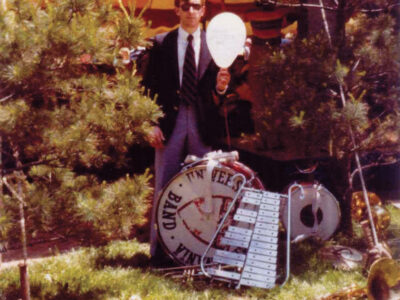
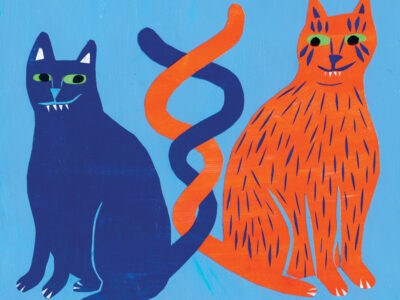
Sic itur ad astra! My brain still hurts after 25 years. Phantastic time at our Bicentennial Dinner.
Sic itur ad astra!